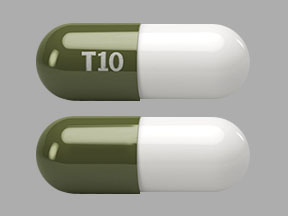Pexidartinib Disease Interactions
There are 2 disease interactions with pexidartinib.
Pexidartinib (applies to pexidartinib) hepatic dysfunction
Major Potential Hazard, Moderate plausibility. Applicable conditions: Liver Disease, Bile Acid Synthesis Disorders, Biliary Obstruction
Pexidartinib can cause serious and potentially fatal liver injury. No dose adjustment is needed for patients with mild hepatic impairment. A dose reduction (125 mg twice a day) is recommended for patients with moderate hepatic impairment. Pexidartinib has not been studied in patients with severe hepatic impairment. Avoid this drug in patients with preexisting increased serum transaminases; total bilirubin or direct bilirubin (greater than ULN); or active liver or biliary tract disease, including increased alkaline phosphatase. It is recommended to monitor liver tests before initiation of treatment and at specified intervals during treatment. Withhold and reduce the dose or permanently discontinue pexidartinib based on the severity of hepatotoxicity.
Pexidartinib (applies to pexidartinib) renal Impairment
Moderate Potential Hazard, Moderate plausibility. Applicable conditions: Renal Dysfunction
Dose modification of pexidartinib is needed for patients with renal impairment. It is recommended to reduce the dose when administering pexidartinib to patients with mild to severe renal impairment (CrCl 15 to 89 mL/min, estimated by Cockcroft-Gault using actual body weight). The recommended dosage is 125 mg in the morning and 250 mg in the evening with a low-fat meal.
Switch to professional interaction data
Pexidartinib drug interactions
There are 651 drug interactions with pexidartinib.
Pexidartinib alcohol/food interactions
There are 2 alcohol/food interactions with pexidartinib.
More about pexidartinib
- pexidartinib consumer information
- Check interactions
- Compare alternatives
- Reviews (1)
- Side effects
- Dosage information
- During pregnancy
- Drug class: multikinase inhibitors
- Breastfeeding
- En español
Related treatment guides
Drug Interaction Classification
| Highly clinically significant. Avoid combinations; the risk of the interaction outweighs the benefit. | |
| Moderately clinically significant. Usually avoid combinations; use it only under special circumstances. | |
| Minimally clinically significant. Minimize risk; assess risk and consider an alternative drug, take steps to circumvent the interaction risk and/or institute a monitoring plan. | |
| No interaction information available. |
See also:
Further information
Always consult your healthcare provider to ensure the information displayed on this page applies to your personal circumstances.


